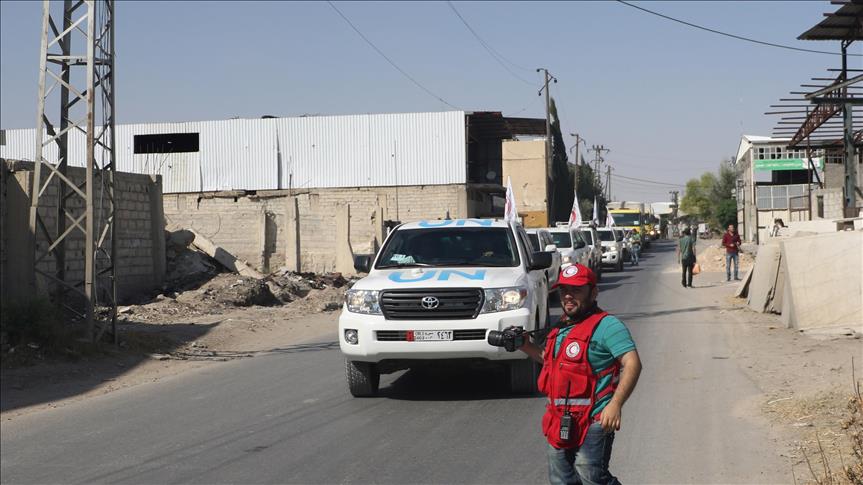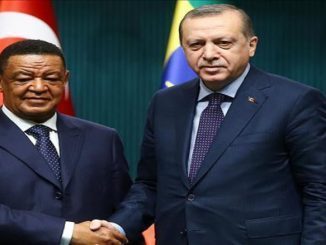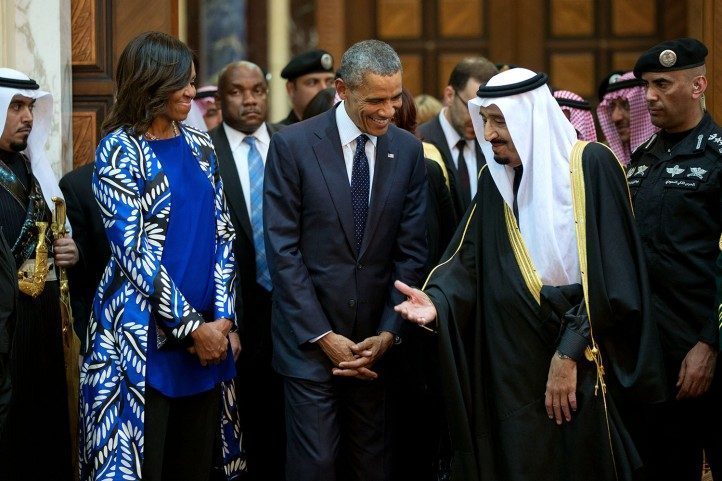
As a part of the Syria ceasefire agreement brokered by US and Russia, two convoys of aid for the Syrian city of Aleppo were waiting on Wednesday after crossing the Turkish border, held up by security fears and disagreements between combatants on the third day of a ceasefire.
The convoys, each of around 20 trucks carrying mostly food and flour, set off from the Turkish border town of Cilvegozu, 40 km (25 miles) west of Aleppo, on Tuesday but made it little further than the Turkish customs post on the Syrian border.
The delay was a sign of the difficulties facing the ceasefire, brokered by the United States and Russia on Friday and which Washington hopes will revive peace talks aimed at ending Syria’s civil war.
The aid is badly needed. The U.N. estimates that well over half a million people are living under siege in Syria, whose five-year conflict has killed hundreds of thousands and displaced more than 11 million.
“Things are taking longer than we’d hoped,” David Swanson, spokesman for the U.N. Office for the Coordination of Humanitarian Affairs told Reuters. He said 20 U.N. trucks were waiting at the border “ready to go”.
Disagreements between the warring sides were blocking aid getting into opposition-held eastern Aleppo, Swanson added. “Some groups are looking to gain political mileage out of this, and this is something we need to put aside,” he said.
A second U.N. official said that deliveries to Aleppo had to cross numerous checkpoints operated by both opposition and government forces, and it was still unclear whether the aid could get through safely.
But the opposition’s Sabra blamed Damascus, saying the government’s insistence on controlling aid was obstructing its delivery to Aleppo under the agreement.
The Syrian government has said it will reject any aid deliveries to the city not coordinated through itself and the United Nations, particularly from Turkey, which has backed the rebels fighting Assad.
The Syrian state news agency SANA, quoting the foreign ministry, said: “Commenting on the Turkish regime’s statements highlighting its intention to send materials disguised as humanitarian aid to Aleppo city, the Syrian Arab Republic announces its rejection to allow such materials to enter no matter who provides them, including the Turkish regime in particular, without coordination with the Syrian government and the UN.”
The U.N. says it must get permission for most of its aid deliveries from Damascus. The U.N. has repeatedly criticized the Syrian government for restricting access, especially to besieged areas, and for removing vital items from convoys.
As a result, most supplies to opposition-held areas are delivered across rebel controlled border points, sidestepping government approval.
That allows them to bring in supplies despite the political constraints, but exposes them to greater danger and still does not address the suffering of those in inaccessible, heavily besieged areas which the U.N. aims to reach through the truce.
The U.N. special envoy for Syria, Staffan de Mistura, said on Tuesday that the U.N. was still waiting for Damascus to issue letters authorizing aid deliveries. A Turkish official said no further trucks were expected to cross the border on Wednesday until the situation became clearer.
The ceasefire has drastically reduced fighting across the country between Syrian government forces and the rebels. But a similar truce in February gradually broke down and violence escalated sharply, particularly around Aleppo.
The Syrian crisis began as a peaceful demonstration against the injustice in Syria. Assad regime used to fire power and violence against the civilians and led to armed resistance. 450.000 Syrians lost their lives in the past five years according to UN estimates, and more than 12 million have lost their homes.



